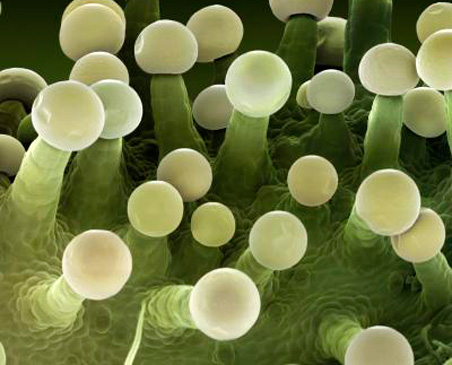Synthetic Cannabinoids: A New Direction for the Cannabis Industry?
Synthetic cannabinoids—more precisely, synthetic analogs of organic compounds of this type—are poised to become a new and unique branch in the development of the cannabis industry. Much like synthetic meat, which is rapidly gaining popularity in the United States, these products are increasingly resembling their natural counterparts in terms of properties. Combined with the relatively simple and scalable production process, this could soon lead to a significant portion of organic products on the legal market being replaced by such alternatives, both in the therapeutic and recreational segments of the industry.
The development of this sector began in earnest about ten years ago, as the first wave of cannabis reforms was just starting. Some pharmaceutical companies began exploring opportunities to enter untapped regional cannabis markets with products that were technically legal alternatives to whole cannabis flowers or natural cannabinoid extracts. Early efforts focused on creating synthetic structural analogs of CBD and THC. However, scientists quickly realized that the same synthesis technologies could be used to efficiently produce much rarer compounds found in nature, such as CBG and CBN. As a result, the industry now has the knowledge and technology to produce over 100 different compounds of this type, most of which are “exotic” cannabinoids that can only be obtained in minuscule amounts from plants with specific genetics.
Biotech Companies Leading the Way
Today, several biotech companies around the world are actively working to improve these techniques, specifically by speeding up synthesis procedures and increasing the overall production volumes of exotic compounds. These compounds have a wide range of potential uses, from therapeutic and cosmetic applications to recreational products. Currently, CBD remains the leader in terms of production volume, as it is the most studied and versatile non-psychoactive cannabinoid. However, cannabigerol (CBG), which offers more pronounced pain-relieving and anti-inflammatory effects, is quickly catching up.
Canadian company Willow Biosciences, in partnership with Albany Molecular Research, is one of the leaders in this segment. They recently announced the creation of the first facility for industrial-scale production of synthetic CBG, which is expected to be fully operational by the middle of next year. The company has already signed supply contracts with several distributors, and according to company president Trevor Peters, they expect to sign 17 more contracts next year after demonstrating their promised rapid and large-scale cannabinoid extraction technology.
“Based on the proposals we’ve received, companies from a wide range of industries are interested in using synthetic cannabinoids in their products,” Peters said in an interview. “So far, we’ve signed contracts to supply extracts for pharmaceutical and cosmetic products, but in the future, food and beverage manufacturers, as well as cigarette companies, are also showing interest in purchasing non-psychoactive extracts.”
Growing Competition and New Technologies
Willow is not the only company ready to launch industrial-scale cannabinoid extract production. American firms like Demetrix Inc. and Amyris Inc. have also announced plans to begin mass production of various types of synthetic cannabinoids by the middle of next year. Biomedican Inc. has even developed its own strain of cannabis that produces higher concentrations of CBG oils, which, according to company leadership, will allow them to launch large-scale production of this and other exotic cannabinoids by early next year—giving them a competitive edge with their combination of organic and synthetic products.
Another notable player is Altria Group Inc., owner of the Marlboro brand, which acquired biotech company Cronos Group at the end of 2018. Altria plans to use Cronos’s technology to mass-produce various cannabinoids using genetically modified yeast, essentially “growing” the necessary compounds in a lab. Commercial production of cannabinoid extracts is expected to begin by September of next year at new facilities operated by Canadian lab Ginkgo Bioworks, owned by Cronos.
In short, interest from major companies in producing these extracts continues to grow, fueled by the increasing popularity of cannabis and its non-psychoactive components among the general public. “CBD has already become a trendy ‘alternative’ remedy for stress and anxiety, especially among young consumers,” says Laura Fuentes, CEO of Green Roads, which recently began selling ready-to-drink coffee beverages with added natural and synthetic CBD and CBG extracts in the U.S. market. “CBG is the next step in this trend, and we expect growing interest in other lesser-known cannabinoids that offer relaxing and energizing effects without the intoxicating effects of THC.”
Advantages of Synthetic Production
Currently, the main technologies for mass-producing cannabinoids in the lab are based on using various types of modified yeast, which can produce a wide range of compounds from a single, inexpensive base. In addition to the relative simplicity of the production process, its main advantage is efficiency—guaranteeing pure, concentrated extracts of specific compounds. Synthetic products do not contain impurities that could alter their effects, which is also a significant benefit for product certification and market approval, where contaminants can lead to product rejection.
“At present, most extracts on the U.S. and Canadian markets are obtained from processing cannabis plants, both special and industrial varieties. However, despite the abundance of raw material, the extraction and purification process significantly increases the average price per unit for the end consumer. This is not the case with new extraction technologies, which yield a ready-to-use, high-quality product that doesn’t require further processing,” notes Dennis O’Neill, CTO of Biomedican, which is also looking to enter this new market segment. “Moreover, this method guarantees consistent product quality, regardless of production scale or speed.”
According to Cronos analysts, synthetic extract production will allow companies to spend no more than $1,000 to produce a kilogram of product. In other words, the cost of producing one gram of cannabinoid under these conditions will be less than a dollar. For comparison, producing one gram of CBD extract from industrial cannabis using traditional methods costs about $20. Clearly, as this technology becomes more popular and efficient, it will be able to compete successfully with traditional extraction methods. “Without a doubt, the future of the extraction market lies in the production of synthetic cannabinoids,” says O’Neill.



